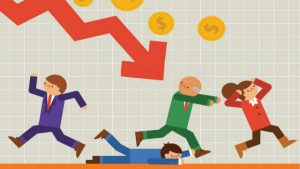Home » Commentary » Opinion » Davos deserts economics
· Ideas@TheCentre
 Despite global economic headwinds, international institutions — often with exclusively economic missions —are increasingly sliding their priorities out of whack. That’s a real disservice, as the world needs economic remedies to the global malaise.
Despite global economic headwinds, international institutions — often with exclusively economic missions —are increasingly sliding their priorities out of whack. That’s a real disservice, as the world needs economic remedies to the global malaise.
World economic growth in 2019 was the slowest since the GFC, the trade environment is more turbulent, and there appears no end to sluggish productivity. As the IMF summed up recently: “the outlook remains precarious.”
As a result, there’s perhaps no better time for trailblazing novel economic solutions. Such fixes could be warding off sustained lose-lose trade wars, stabilising market volatility around international risks (think, coronavirus), and establishing shared expectations for sustainable, mutually beneficial resource extraction and energy policies.
In this globalised world, we’re often inclined to look internationally for answers to seemingly intractable problems. Yet, much like corporations that have lost their way advancing social agendas, rather than the profits of shareholders, some international institutions have taken to flunking their economic responsibilities in favour of flashing their green credentials.
It’s clear that constructive debate is needed to properly balance economic interests and climate mitigation — domestically and internationally.
Cool heads warn against over-enthusiastic climate mitigation efforts to ensure the “cure isn’t more painful than the disease.” To this end, a recent report signals the ‘green swan’ risks of climate change and cautions against mitigation strategies that are either too drastic or too mild.
But despite the desperate need for a sober and constructive search for economic solutions, last week’s World Economic Forum (WEF) in Davos showcased yet more unashamed division and alarmism that ultimately advances nobody’s interests.
It’s not just the eccentric guestlist to blame either. The WEF’s 2020 Global Risks Report — while recognising that we’re facing “an extended low growth period” — appears to have tipped the scales overwhelmingly away from economic concerns.
True, these potential risks needn’t be mutually exclusive, but it’s a far cry from the concerns that used to keep WEF up at night — typically, fiscal and financial market risks. Leaning heavy on environmentalism, while being dispiritingly lite on economics, and indeed, on pragmatism, doesn’t cut it in terms of the fixes that are needed.
There’s no doubting we face a precarious global outlook — all the more reason that economic institutions should stay in their lanes and provide the international economic leadership that is seriously lacking.
Davos deserts economics